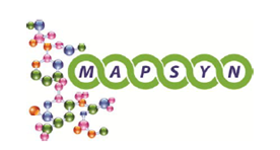Microwave, Acoustic and Plasma assisted SYNtheses (MAPSYN) - CONCLUDED
Aree / Gruppi di ricerca
Partecipanti al progetto
- Cravotto Giancarlo (Docente)
- Martina Katia (Ricercatore/trice)
- Tagliapietra Silvia Maria (Ricercatore/trice)
Descrizione del progetto

Project Coordinator:
Dr Paul Fitzpatrick, UK SME C-Tech Innovation (CTECH)
Members of other units:
Dr Paul Fitzpatrick ( C-Tech Innovation-UK), Mr Edward Jones (C-Tech Innovation-UK), Dr Rachel James (C-Tech Innovation-UK), Prof. Hessel (Technische Universiteit Eindhoven-NL), Dr. Qi Wang (Technische Universiteit Eindhoven-NL), Dr. Jurgen E. Lang (Evonik Industries-DE), Dr Patrick Löb (Institut für Mikrotechnik Mainz-DE), Dipl.-Ing. Ulrich Krtschil (Institut für Mikrotechnik Mainz-DE), Dr Alex Ibhadon (University of Hull-UK), Dr Werner Bonrath (DSM nutritional products-NL), Prof. Tim Mason (Coventry University-UK), Dr Andrew Cobley (Coventry University-UK), Dr Larysa Paniwnyk (Coventry University-UK), Mr. Mike Hawes (Syrris-UK), Dr. Roberto Gómez (Universidad de Alicante-ES), Dr. Pedro Bonete (Universidad de Alicante-ES), Dr. Teresa Lana-Villarreal (Universidad de Alicante-ES), Veronica Saez (Universidad de Alicante-ES), Uwe Hofer (UWE- DE), Mr. Wolfgang Dopf (Konstandin & Partners Engineering-DE)
Partners:
C-Tech Innovation-UK
Technische Universiteit Eindhoven-NL
Evonik Industries-DE
Institut für Mikrotechnik Mainz-DE
University of Hull-UK
DSM nutritional products-NL
Coventry University-UK
Syrris-UK
Universidad de Alicante-ES
Konstandin & Partners Engineering-DE
Sponsors:
EU 7th Framework Program “Research for the Benefit of SMEs
CRAVOTTO non ha messo descrizione
Description
The aim of the MAPSYN project, therefore, is the development of sustainable synthetic procedures which directly addresses these four physical areas of Process Intensification (PI), to improve efficiency and cut down reaction times and energy consumption by at least 50% whilst using non toxic chemicals and therefore reducing CO2 emissions.
This requires more automation control and a correct application of non-conventional energy sources (high-intensity US, hydrodynamic cavitations, MWs and CP), as well as new, efficient and scalable protocols to be implemented in continuous flow reactors.
In the realization of these potential PI benefits a multitude of actions will be required:
- Fundamental and strategic research to reach a robust proof-of-concept at the lab scale including theoretical modelling thermodynamic, kinetic and catalysts. Academic excellence required;
- Applied research with scaling out and industrialization: development of industrial scale prototypes, and piloting facilities will be reached by the collaboration of Industrial and RTO excellence ;
- Enabling technologies: Process analytical technology, (in situ) measurement, analysis methods and process control systems will be developed. Numerical process modelling: faster, more robust of chemical reactions will be developed and monitored; need to be developed that can cope with the incorporation of (often continuous) PI modules in (often batch) processes.
- Value chain optimization: All project sectors can reap significant benefits from chain optimizations in combination with novel PI technologies. The main goal of MAPSYN is the development of a multifaceted strategy and a net of collaborations for a rational application of alternative energy sources to selected end user chemistries and an optimal scaling up of innovative protocols born in the laboratory scale prototypes.
Links:
CORDIS - Microwave, Ultrasonic and Plasma assisted Syntheses




